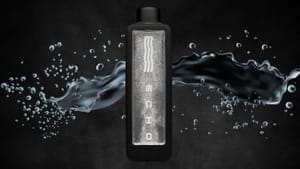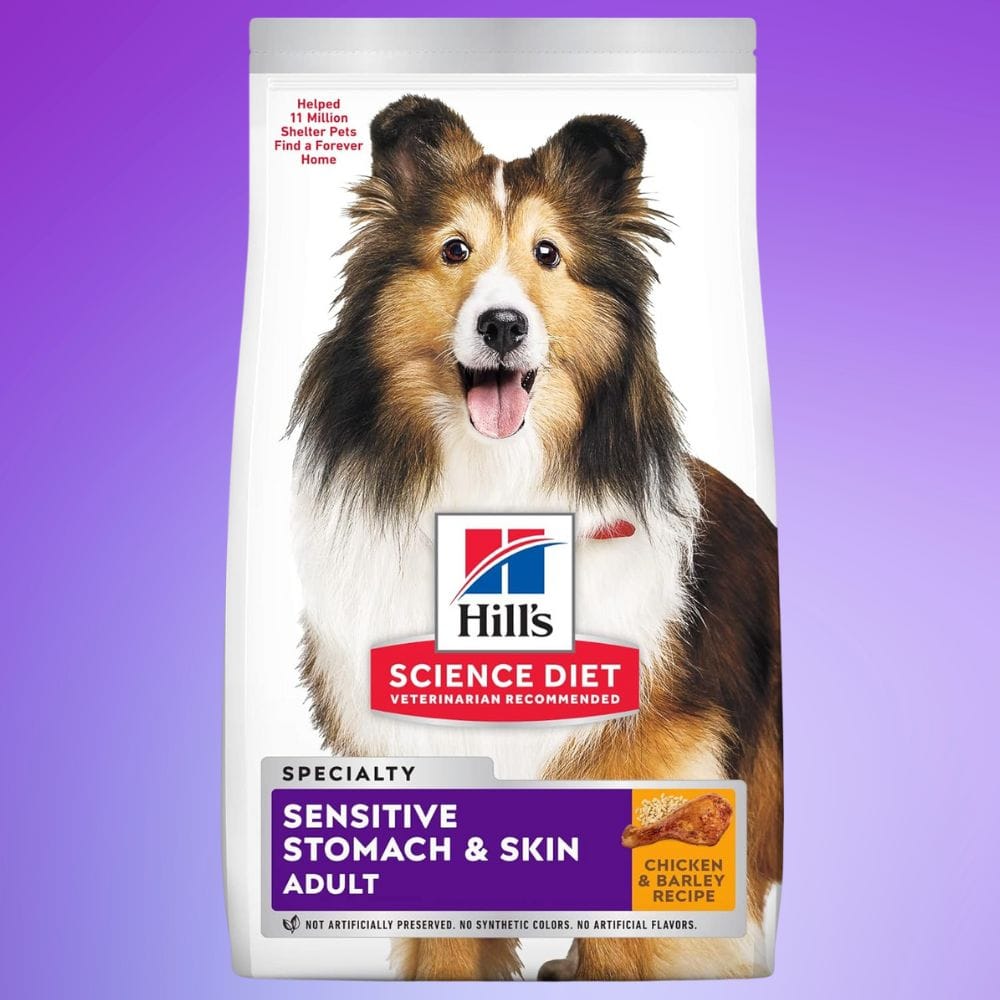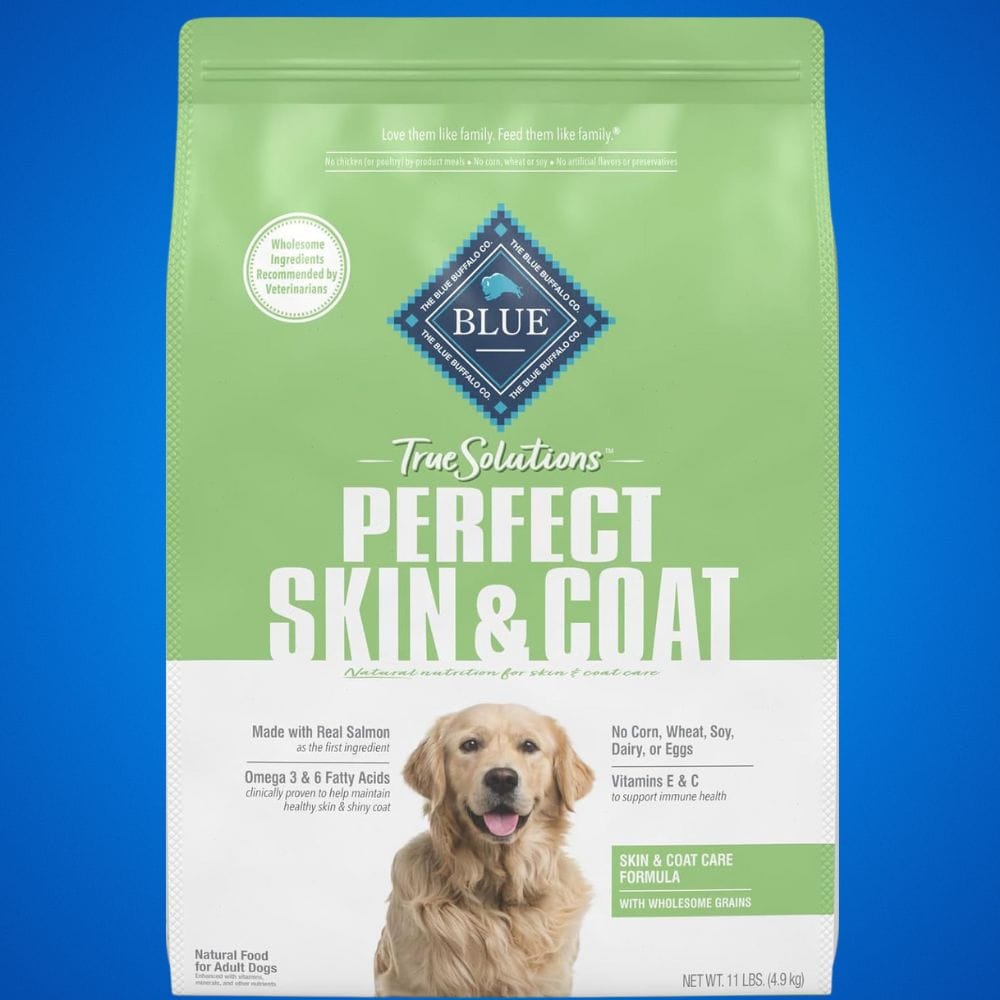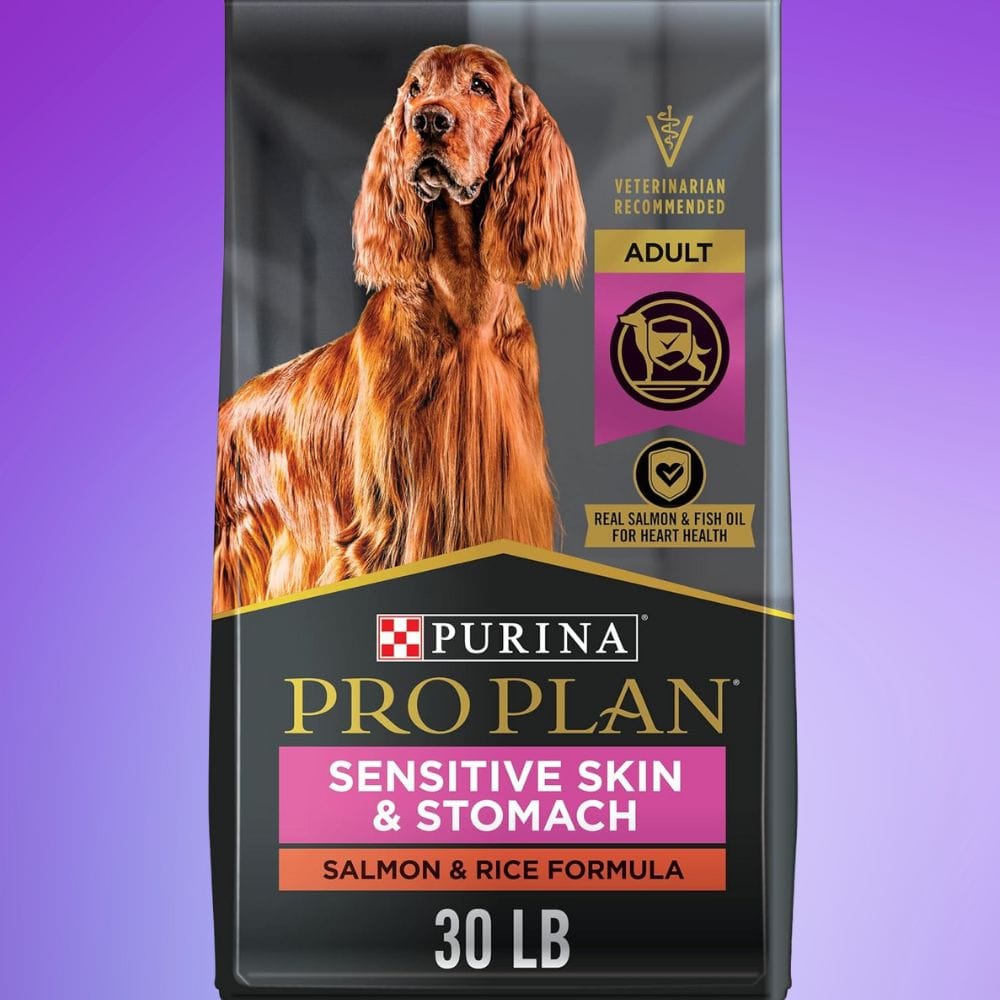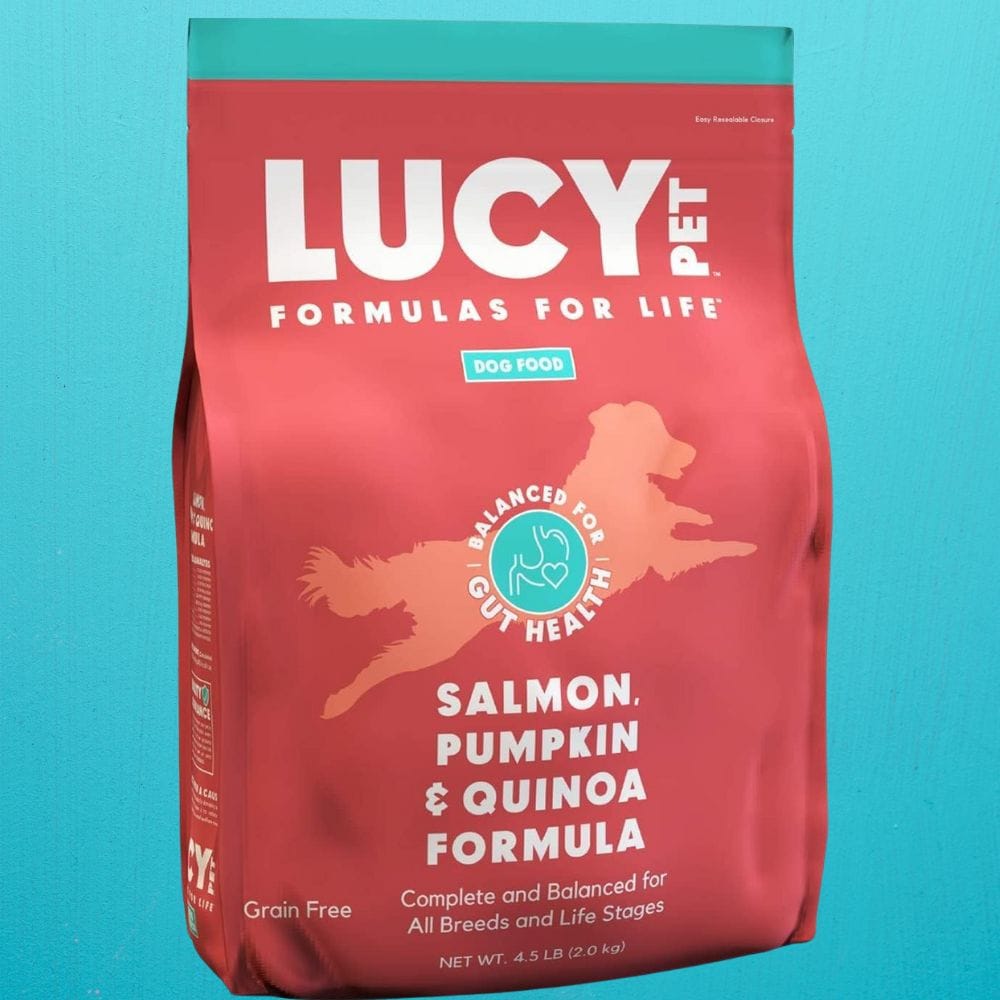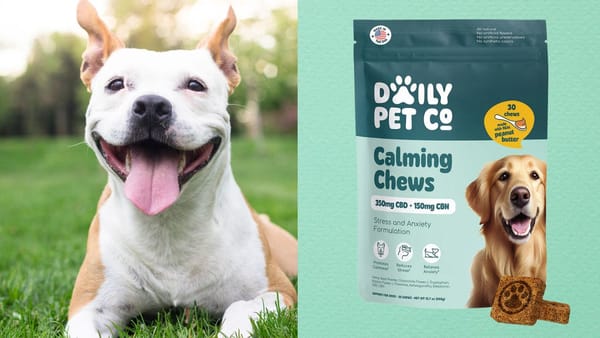Key Takeaways:
- Discover the top dog food brands that cater to canines with allergies.
- Understand the importance of ingredients like salmon meal and sweet potatoes for maintaining a healthy immune system and skin coat.
- Learn how to transition your pet to a new food that supports digestive health and alleviates food sensitivities.
Ah, the beloved furry members of our families—our dogs. They bring so much joy, love, and, let's be honest, a fair amount of mess into our lives. But what happens when our lovable companions develop allergies? It can be quite a challenge to see them uncomfortable and itchy. One of the first steps in addressing canine allergies is examining their diet. Just like us, dogs can have food sensitivities that lead to itchy skin, upset tummies, and overall discomfort. So, what's the scoop on finding the best dog food for allergies? Well, let's dig into this kibble conundrum and sniff out some answers!
How We Choose
Our team has spent hours researching through thousands of user reviews and star ratings for the best products on the market. We take into account factors such as ingredients, performance, sustainability, and affordability when recommending products to our readers. We strive to find the best options that meet everyone’s needs - even those on a budget!
We hope you find your next special item below! These products were independently selected by our editors. Good Guru Reviews may collect a share of sales or other compensation from the links on this page if you decide to buy something (at no additional cost to you, that's how we stay in business). Enjoy finding your next special item with us!
Nulo Freestyle All Breed Dog Food: A Grain-Free Marvel
When it comes to the best dog food for allergies, Nulo Freestyle stands out with its grain-free formula. This adult dog food is designed to promote a healthy immune system and maintain healthy skin. The absence of common food allergens like chicken eggs and wheat gluten makes it a haven for adult dogs with sensitivities. The inclusion of salmon meal and menhaden fish meal not only satisfies taste buds but also supplies omega fatty acids crucial for coat health.
Nulo Freestyle's commitment to natural ingredients, including sweet potatoes, ensures a highly digestible formula that supports your dog's digestive system. Pet parents can rest assured that their furry friends are getting a meal free of fillers and artificial preservatives, which is essential for dogs prone to allergic reactions.
Hill's Pet Nutrition Science Diet Dry Dog Food: Scientifically Crafted
Hill's Pet Nutrition is renowned for its Science Diet line, which offers dry dog food specifically formulated for dogs with skin allergies and sensitivities. This pet food is a testament to the brand's dedication to pet health, with a recipe that includes vitamin E supplements and omega fatty acids to nourish the skin and coat. The chicken meal serves as a high-quality protein source, while the rice formula caters to sensitive stomachs.
The Science Diet is also enriched with a blend of antioxidants that support a healthy immune system, ensuring that your adult dog fed this diet receives comprehensive care. Hill's Pet Nutrition has designed this food to meet the AAFCO Dog Food Nutrient Profiles, which means it's not only safe but also nutritionally complete for your pet.
Blue Buffalo True Solutions Perfect Skin & Coat: Nature's Answer
Blue Buffalo's True Solutions line is a natural adult dry dog food crafted to address itchy skin and promote a shiny coat. The main ingredient, real salmon, provides a rich source of protein and omega fatty acids, which are vital for healthy skin. This grain-free formula also includes sweet potatoes and peas, which are excellent sources of fiber for healthy digestion.
The True Solutions range is free from corn, wheat, or soy, which are common triggers for food allergies. Instead, it relies on natural flavor to entice even the pickiest eaters. The addition of vitamin C and E supplements further boosts the immune system, making this one of the best dog foods for pets with environmental allergies.
Purina Pro Plan Sensitive Skin and Stomach Dog Food: Tailored Nutrition
Purina Pro Plan's Sensitive Skin and Stomach Dog Food with Salmon and Rice Formula is a prime choice for pet parents seeking a diet that caters to both the digestive and immune health of their dogs. The real salmon as the first ingredient ensures a rich taste and provides essential nutrients for maintaining healthy skin and coat. This adult dog food is also fortified with live probiotics for digestive health and a strong immune system.
The highly digestible oatmeal and rice formula is gentle on the stomach, making it ideal for dogs with food sensitivities. Pet owners are encouraged to provide adequate fresh water and consult a veterinarian regularly to monitor their dog's health when feeding Pro Plan exclusively.
Lucy Pet Formulas for Life Salmon: Wholesome and Balanced
Lucy Pet's Formulas for Life with Salmon is a premium choice for dogs with allergies. This food is crafted with a blend of salmon meal, deboned turkey, and chicken fat to provide a balanced diet that supports healthy joints and heart health. The grain-free recipe is also packed with prebiotic fiber from sweet potatoes, promoting healthy digestion.
The food is formulated to meet the nutritional levels established by the AAFCO Dog Food Nutrient Profiles for all life stages. It contains naturally occurring microorganisms that aid in maintaining a balanced gut flora, which is crucial for dogs with food allergies. Lucy Pet's commitment to natural ingredients and the absence of artificial preservatives make it a trustworthy option for pet parents.
Transitioning to a New Food: Avoid Dietary Upsets
Switching your dog to a new food requires patience and care to avoid dietary upsets. Start by mixing a small amount of the new food with the previous food, gradually increasing the new food's proportion over a week. This gradual transition helps your dog's digestive system adapt to the new diet without causing an allergic reaction or stomach salmon.
It's essential to observe your dog's reaction to the new food and consult with your veterinarian if any adverse effects occur. Feeding your dog the same food exclusively can help stabilize their digestive system and reduce the risk of food allergies.
Canine Culinary Delights: The Rise of Grain-Free and Specialty Ingredients
Grain-free dog food has become a staple in the pet care industry, catering to canines with specific dietary needs. The exclusion of corn, wheat, or soy from a dog's current food can significantly alleviate discomfort associated with food allergies. Grain-free options often feature novel proteins and carbohydrates, such as turkey meal and sweet potato, which are less likely to trigger allergic reactions. These ingredients not only provide essential nutrients but also cater to picky eaters with their palatable flavors.
The shift towards grain-free recipes reflects a broader trend of prioritizing a pet's health through diet. Sweet potato, for instance, serves as a nutritious alternative to traditional grains, offering a rich source of dietary fiber that aids in maintaining a dog's digestive system. Turkey meal, a concentrated source of protein, supports muscle development and energy levels. By choosing a beef recipe or a turkey meal-based food, pet owners can ensure their furry companions enjoy a meal that's both delicious and nutritious.

Nutritional Powerhouses: Understanding the Benefits of Key Ingredients
When selecting the best dog food for allergies, it's crucial to consider the nutritional profile of the ingredients. Omega fatty acids, often derived from sources like sunflower oil, play a vital role in maintaining a dog's skin and coat health. These essential fats contribute to a lustrous coat and can help reduce inflammatory responses associated with skin allergies. Additionally, incorporating ingredients like pea starch can offer a gentle alternative for dogs with sensitive stomachs, ensuring that the food is both nourishing and easy to digest.
Beyond the primary ingredients, it's important to recognize the role of supplements such as potassium chloride in a dog's diet. This mineral is vital for proper muscle function and overall cellular health. By choosing foods enriched with these components, pet owners can support their dog's immune system and promote a robust physiological state. The careful balance of these elements in a dog's diet underscores the importance of a holistic approach to managing food allergies and sensitivities, ultimately contributing to a happier, healthier pet.
The Significance of Eliminating Common Allergens: Grain, Corn, Wheat, and Soy
When it comes to managing food allergies in dogs, identifying and eliminating common allergens is paramount. Many commercial dog foods contain grains such as corn, wheat, or soy, which are often implicated in allergic reactions. Opting for a grain-free diet can be a transformative step for dogs with sensitive stomachs or skin issues. By removing these potential irritants, pet owners can observe significant improvements in their dog's digestive system and overall comfort.
Moreover, the shift to grain-free dog food is not just about avoiding allergens; it's about embracing a diet that's closer to a dog's ancestral eating habits. Grain-free formulas often substitute these common fillers with high-quality proteins and vegetables, providing a more nutrient-dense meal that supports your pet's health. Owners should carefully monitor their dog's current food and watch for signs of allergies, such as itching or gastrointestinal distress, to determine if a grain-free diet could be beneficial.

Holistic Approaches to Managing Dog Food Allergies
Embracing a holistic approach to managing dog food allergies means looking beyond the food bowl. While choosing the right grain-free diet is crucial, pet owners should also consider additional supplements that can support their dog's skin and digestive health. Omega fatty acids, for instance, are known for their anti-inflammatory properties and can greatly enhance the condition of a dog's skin and coat. These can be found in certain fish oils and flaxseed oils, which can be added to your dog's current food.
Furthermore, a dog's digestive system can be sensitive to abrupt changes in diet. Therefore, when transitioning to a new, allergy-friendly food, it's important to do so gradually to prevent any dietary upsets. Integrating probiotics and prebiotics can also aid in maintaining a healthy gut flora, which is essential for a robust immune system and digestion. By taking a comprehensive approach that includes diet modification and supportive supplements, pet owners can significantly improve their dog's quality of life.
The Intersection of Diet and Immunity in Dogs
When it comes to bolstering your dog's immune system, the role of diet cannot be overstated. A grain-free diet, devoid of corn, wheat, or soy, is often recommended for dogs with food allergies, as these ingredients are common allergens that can compromise a pet's health. By eliminating these potential triggers, you're not only addressing the immediate allergic reactions but also supporting the overall immune function of your furry companion. This proactive approach to nutrition ensures that your dog's defenses are fortified against environmental and dietary challenges.
Moreover, the inclusion of omega fatty acids in a dog's diet is crucial for maintaining a robust immune system. These essential nutrients, found in high-quality, allergy-friendly dog foods, contribute to the reduction of inflammatory responses, which are often at the heart of allergic reactions. By focusing on a diet rich in these fatty acids, you're not just improving your dog's skin and coat condition but also enhancing their body's ability to ward off illnesses and recover more swiftly from any allergic episodes.
Digestive Wellness: The Foundation of a Healthy Dog
A dog's digestive system is central to their overall well-being, and when it's compromised by food allergies, the effects can ripple throughout their entire body. Transitioning to a dog's current food that is specially formulated for sensitive stomachs can make a world of difference. These diets are typically grain-free and crafted to provide gentle nourishment that soothes rather than irritates the digestive tract. By prioritizing your pet's digestive health, you're setting the stage for improved nutrient absorption and a happier, more energetic dog.
In addition to selecting the right food, understanding the intricacies of your dog's digestive system is key to managing food allergies effectively. Probiotics and prebiotics play a vital role in maintaining a balanced gut flora, which is essential for a healthy digestive process. When a dog's current food includes these beneficial components, it can help alleviate symptoms associated with food allergies, such as gastrointestinal upset. By nurturing your dog's gut health, you're not only easing their discomfort but also contributing to their long-term vitality and resilience against dietary sensitivities.
Tailored Diets for Sensitive Stomachs: Beyond Grain-Free Solutions
When it comes to managing a sensitive stomach in dogs, the solution often extends beyond simply choosing a grain-free diet. A tailored diet that considers the unique needs of your pet's digestive system can make a world of difference. By eliminating ingredients that are known to cause issues, such as corn, wheat, or soy, pet owners can provide their dogs with a meal plan that supports digestive health and overall well-being. It's not just about removing grains; it's about creating a balanced diet that nourishes without causing discomfort.
Moreover, the inclusion of omega fatty acids in a dog's current food can play a pivotal role in managing digestive sensitivities. These essential nutrients not only promote a healthy coat and skin but also support the dog's digestive system by reducing inflammation and aiding in the absorption of vital nutrients. When selecting food for a dog with a sensitive stomach, it's crucial to look for formulations that incorporate these beneficial omega fatty acids, ensuring that your pet's health is at the forefront of their dietary regimen.

The Protective Shield: Omega Fatty Acids for Your Dog's Skin and Coat
Omega fatty acids are not just beneficial for your dog's digestive system; they are also the unsung heroes when it comes to maintaining a healthy skin and coat. Dogs suffering from food allergies often exhibit symptoms through their skin, and a diet rich in omega fatty acids can help build a protective barrier against allergens. By incorporating foods that are high in these nutrients, you can help alleviate the discomfort associated with itchy, irritated skin, which is a common sign of a reaction to allergens like grain, corn, wheat, or soy.
In addition to their skin-soothing properties, omega fatty acids have systemic benefits that contribute to your pet's health. They play a crucial role in reducing inflammatory responses throughout the body, which can be particularly beneficial for dogs with food allergies. When choosing a dog's current food, it's essential to consider products that highlight the presence of these powerful nutrients. A well-rounded diet that includes omega fatty acids can help ensure that your dog's skin remains healthy, resilient, and less prone to allergy-induced issues.
Feeding Guidelines and Water: Essential for Health
When feeding your dog a new diet, it's crucial to follow the manufacturer's feeding guidelines. These recommendations are based on your dog's weight, activity level, and life stage. Always provide adequate fresh water to keep your pet hydrated and support their overall health.
Regular check-ups with a veterinarian can help ensure that your dog's diet is meeting their nutritional needs and that they are not experiencing any adverse reactions to their food. This proactive approach is vital for maintaining your dog's health, especially for those with food sensitivities.
The Role of Probiotics and Prebiotics: Digestive Harmony
Probiotics and prebiotics play a significant role in promoting digestive health, especially for dogs with allergies. These naturally occurring microorganisms help maintain a balanced gut flora, which is essential for a healthy digestive system. Many of the best dog foods for allergies include these beneficial ingredients to support your pet's digestive and immune health.
Incorporating foods with probiotics and prebiotics can aid in preventing digestive issues and strengthen your dog's ability to fight off allergens. This approach is particularly beneficial for dogs with sensitive stomachs and food allergies.

Understanding Food Allergies in Dogs: A Closer Look
Food allergies in dogs can manifest in various ways, including itchy skin, digestive issues, and chronic ear infections. Common food allergens include beef, dairy, wheat, and chicken eggs. Identifying and eliminating these allergens from your dog's diet is crucial for their well-being.
Working with a veterinarian to conduct an elimination diet can help pinpoint the specific allergens affecting your dog. Once identified, selecting a dog food that avoids these ingredients can significantly improve your pet's health and quality of life.
The Importance of Omega Fatty Acids: Skin and Coat Benefits
Omega fatty acids are essential for maintaining healthy skin and a shiny coat in dogs. These nutrients, found in ingredients like salmon meal and menhaden fish meal, help reduce inflammation and support skin health. The best dog foods for allergies often contain high levels of omega fatty acids to address skin sensitivities and promote overall coat health.
Incorporating a diet rich in omega fatty acids can also benefit dogs with joint issues and support heart health, making it a vital component of a holistic approach to managing allergies.
Choosing the Right Food for Your Dog's Size: Small vs. Large Breed Needs
The nutritional needs of small-breed dogs differ from those of large-breed dogs. Small breeds may require more calories per pound due to their higher metabolism, while large breeds need specific nutrients to support healthy joints. When selecting the best dog food for allergies, it's important to consider your dog's size and choose a formula that caters to their unique requirements.
Brands like Nulo Freestyle and Blue Buffalo offer formulas specifically designed for small and large breeds, ensuring that your dog receives the appropriate nutrition for their size and life stage.
The Role of Vitamins and Minerals: Supporting Immune Health
Vitamins and minerals are crucial for supporting a dog's immune system, especially for those with allergies. Ingredients like vitamin E supplement, folic acid, and mixed tocopherols act as antioxidants, protecting cells from damage and supporting overall health. A balanced diet that includes these nutrients can help strengthen your dog's immune response to allergens.
Selecting a dog food that is fortified with essential vitamins and minerals can provide an additional layer of support for pets with food sensitivities, contributing to their long-term well-being.
The Impact of Allergies on Behavior: Recognizing the Signs
Allergies can significantly impact a dog's behavior, leading to discomfort and stress. Signs of food allergies may include excessive scratching, licking, or biting at the skin, as well as gastrointestinal symptoms like vomiting or diarrhea. Observing your dog's behavior and seeking veterinary advice when these signs occur can help address allergies effectively.
Choosing a dog food that is specifically formulated for allergies can alleviate these symptoms and improve your pet's overall demeanor, leading to a happier and more comfortable life.
Conclusion: Finding the Best Fit for Your Furry Friend
Selecting the best dog food for allergies requires careful consideration of ingredients, your dog's size, and their specific sensitivities. Brands like Nulo Freestyle, Hill's Pet Nutrition, Blue Buffalo, Purina Pro Plan, and Lucy Pet offer specialized formulas that cater to the needs of dogs with allergies. By focusing on natural ingredients, grain-free options, and the inclusion of omega fatty acids, vitamins, and minerals, these foods provide a path to improved health and comfort for your pet.
As always, consult with your veterinarian before starting any new regimen to check about potential interactions with other supplements or medications. The information presented in this document is purely for educational purposes and should not be construed as medical advice.
While every effort has been made to ensure the accuracy and reliability of the information provided, all health-related decisions should be made in consultation with a qualified veterinarian healthcare professional. The author does not take any liability for the health decisions made by the reader.
FAQ Section
Q: How do I know if my dog has food allergies?
A: Signs of food allergies in dogs can include itchy skin, digestive upset, chronic ear infections, and changes in behavior. If you suspect your dog has food allergies, consult with a veterinarian for proper diagnosis and treatment.
Q: Can changing my dog's food help with allergies?
A: Yes, changing your dog's food to a formula that avoids common allergens and includes ingredients that support skin and digestive health can help alleviate allergy symptoms. It's important to transition to the new food gradually to avoid dietary upsets.
Q: Are grain-free dog foods better for allergies?
A: Grain-free dog foods can be beneficial for dogs with allergies to grains like wheat, corn, or soy. However, not all dogs with allergies require a grain-free diet. Consult with a veterinarian to determine the best dietary choice for your dog's specific allergies.




